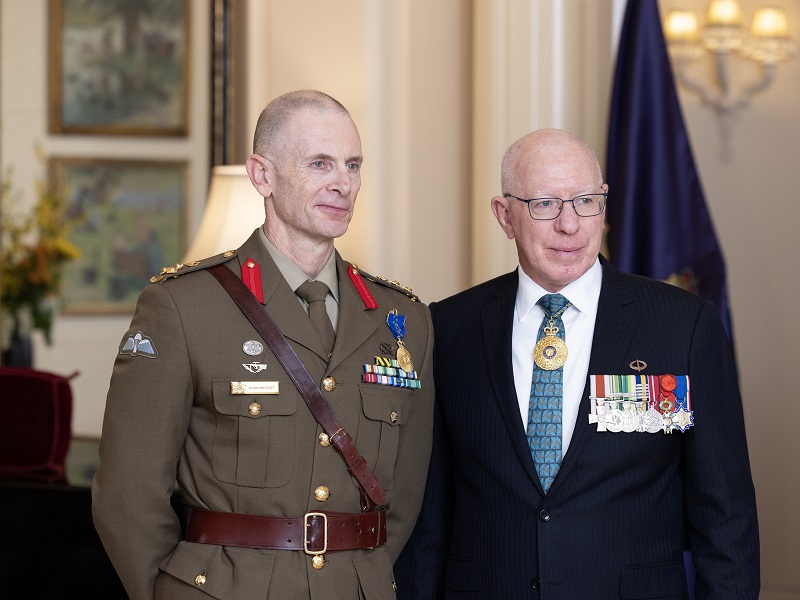Australian Army Brigadier Hugh Meggitt will take over the running of the Advanced Strategic Capabilities Accelerator as part of a shakeup that will see the accelerator move closer to Defence’s operational arm.
The surprise announcement comes less than a year after Professor Hilder was made the permanent head of the accelerator, which currently sits within Defence Science and Technology Group (DSTG).
ASCA was set up in mid-2023 to help Defence solve some of its most pressing technology challenges, introducing a mission-oriented approach to turning Australian ideas into asymmetric advantage in the process.
It has already run a series of missions and challenges that have resulted in more than $137 million in contracts with local companies and universities in areas like quantum technology, electronic warfare and air and missile defence systems.
Defence Industry and Capability minister Pat Conroy on Tuesday said that ASCA would transition to the Vice-Chief of the Defence Force Group to ensure its investments are directly informed by operational needs.
“The Albanese government established ASCA to transform Australia’s defence innovation ecosystem so that game-changing ideas can be developed into capabilities that give the ADF an asymmetric advantage,” he said.

“After a necessary period of establishing itself and learning, ASCA is now moving into its next phase of delivery which will see it more closely aligned with needs of military end users and accelerate cutting-edge capabilities into service.”
The move follows last year’s National Defence Strategy, which called for the Australian Defence Force to shift from its balance force structure to become a “focused force designed to address the nation’s most significant strategic risks”.
It had otherwise not recommended moving ASCA, although said “consideration may be given to broaden [its] remit to support other national security agencies and domestic partners to deliver whole-of-government innovation outcomes”.
But the strategy, released in September, came ahead of criticism of ASCA’s co-design process for its first mission in November, forcing Defence minister Richard Marles to go on the offensive and defend its work.
Brigadier Meggitt comes to ASCA with a glowing record, having served in various Australian Defence Force positions over the past 20 years, including as the Military Attaché and head of the Australian Army Staff in North Americas in Washington DC.

He heads up special operations modernisation at the ADF’s Headquarters Joint Operations Command, a node of Defence tasked with “applying Defence capability at the operational level and conducts operations and exercises”.
He was also appointed a Member of the Order of Australia in 2023 for “exceptional service to the Australian Defence Force in capability development, modernisation and diplomatic relations”.
The government said his “track record in managing diverse, complex priorities that require coordination, understanding and agreement at the most senior levels of Defence and government” would be “invaluable… as ASCA moves to a new phase of capability delivery”.
Professor Hilder, who served as interim and then permanent ASCA head for almost two years in total, was thanked by Mr Conroy and Mr Marles for her significant contribution establishing the accelerator.
Before joining ASCA, Professor Hilder spent just over a year as chief of platforms in DSTG. She has also worked at the University of South Australia’s Future Industries Institute and at the Australian Research Council Research Hub for integrated devices for end-user analysis at low levels in recent years.
“Since its establishment ASCA has worked with Australian industry and our international partners to identify these capabilities, including by working with the United States and the United Kingdom to operationalise AUKUS Pillar II across areas such as undersea warfare and hypersonics,” Mr Marles added.
“This next phase of ASCA’s delivery will ensure Australia can continue to invest in and deliver advanced capabilities that will help keep our nation safe, while supporting local industry, innovation and jobs.”
Do you know more? Contact James Riley via Email.

